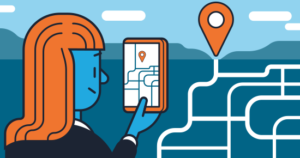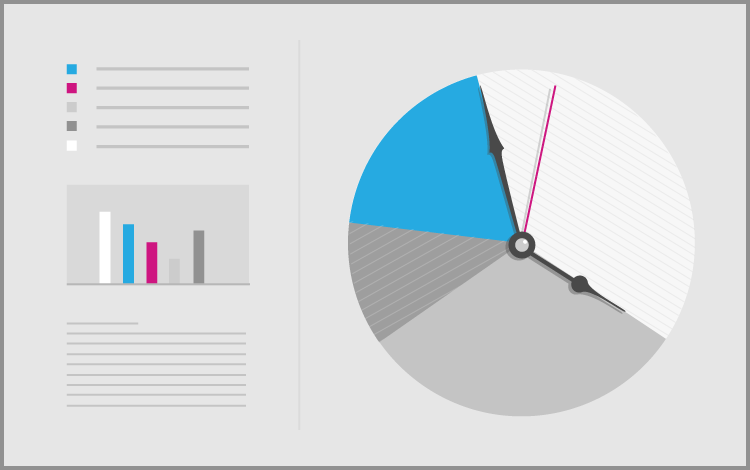How AI and Machine Learning Are Impacting B2B: 3 Great Use Cases for CDPs
June 3, 2019An earlier Zyloblog post described the multiple benefits CDPs offer technology companies, benefits that go way beyond “just” the marketing function. This post will explore why so many B2B companies are now choosing CDPs in the noisy marketing technology/martech landscape (now with over 7000 vendors), what CDPs offer them, and how they’re implementing CDPs for three important, marketing-related purposes: Account Based Marketing (ABM), ID resolution, and GDPR compliance.
Unlocking the value of data: 3 key questions
Collecting raw data, by itself, provides almost zero value in B2B or anywhere else. Data needs a strategy and a structure to unlock its massive potential. How should you begin?
Start by defining exactly where your B2B company wants to go (i.e., map your goals), and define how you’ll navigate to get there (i.e., defining your key performance indicators/KPIs aligned with those goals). You must then answer 3 key strategic questions: (1) what data is most relevant to the business outcomes (goals and KPIs) you seek to drive (hint: it’s usually connected to ROI/return on investment) and (2) how you can leverage data to drive organizational decision-making, including around what products you make and how you engage customers?
Answering that second question will have you converting prospects and building customer engagement/lifetime value, while creating great, full-funnel customer experiences. Only by answering these two “data-needs-a-strategy” questions above can you begin asking the third, “data-needs-a-structure” question: (3) what particular technologies, tools and processes can help our B2B company reach our strategic goals? That’s where a CDP comes in.
3 great B2B use cases for CDPs
CDPs with machine learning give you complete, actionable visibility into your customers’ behavior: you can engage them across multiple channels in real-time, plugging leaks in your funnel (i.e., driving customer retention), segmenting customers to drive ROI, and leveraging predictive customer analytics to identify (and take advantage of) cross-selling and up-selling opportunities. An automated CDP helps you become truly customer-centric in how you run and market your B2B business. What follows are 3 of many great B2B use cases for CDPs:
1. Account Based Marketing. ABM is a B2B strategy that concentrates sales and marketing resources on a defined set of target accounts within a market and leverages personalized campaigns designed to resonate with each account. It’s a top trend in marketing today, and your CDP complements and enables it, helping you deeply understand your key accounts and key personas to drive more ABM revenue.
Your CDP provides actionable, timely account intelligence, customer profiling, persona matching, and ongoing data enrichment of target accounts that will drive ABM success. You can leverage a comprehensive view of each account, while your contact data updates throughout the process. Learn who is connected to who, and how, with key account data that tracks your account’s different business units and organizational hierarchies. Know how they make purchasing decisions that impact your revenues, then influence those decisions through ABM.

2. ID resolution. The first rule of sales and marketing is “know thy customer,” but that can be challenging when it comes to digital channels. A CDP can help by organizing collected data points, making them actionable throughout the funnel. A CDP’s data enrichment function will simply fill in missing data fields such as customer names, email addresses, mailing addresses, phone numbers, and more. You can better know your customers through their unique identifiers, which helps you engage them.
A CDP’s data enrichment function can also sift through your web traffic and transform anonymous customer data into actionable assets. It does this by resolving identities and enriching relevant information through the use of cookies, device IDs, or IP addresses. With now-relevant customer data in hand, you can more engage with known customers, not strangers.
3. GDPR compliance. When B2B marketers gain a deeper understanding of who customers are and what they need, as CDPs enable, those customers tend to give you “permission” to market to them. This “permission” approach to marketing, pioneered by Seth Godin, is necessary in a world where data privacy has never been more important (especially to customers).
The General Data Protection Regulation/GDPR means you’ll need customers to actively opt-in, giving you permission to market to them. Marketing to customers you don’t know with offers they don’t find relevant will ultimately lead to customers refusing to stay “opted-in.” Know your customers and their needs, or risk violating a growing regulatory framework around data privacy, of which GDPR and California’s Data Privacy law are two recent examples. A CDP lets you manage and maintain customer permissions, so you retain them.


